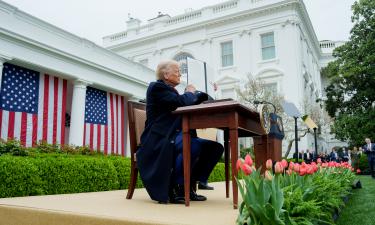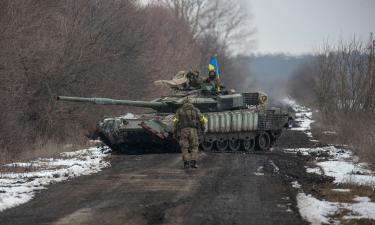Israel and Palestina: Abbas-Sharon summit in doubt over disagreements on key issues
A much-anticipated summit between the Israeli and Palestinian leaders was suddenly thrown into doubt Sunday after Israel's defense minister rejected two key Palestinian demands meant to make the meeting a success.
Senior Israeli and Palestinian negotiators failed to bridge the differences Sunday, but they agreed to meet one last time in hopes of salvaging the summit.
The meeting, tentatively set for Tuesday, would be the first between Israeli Prime Minister Ariel Sharon and Palestinian leader Mahmoud Abbas since Israel completed its withdrawal from the Gaza Strip last month. The unilateral pullout has raised hopes throughout the world that peace talks might soon resume. Israeli and Palestinian officials say they want the summit to produce concrete results.
But the two sides are deadlocked over several Palestinian demands, including the reopening of Gaza's border with Egypt, the handover of West Bank towns to Palestinian security control, the release of prisoners held by Israel and demands for more weapons for the embattled Palestinian security services.
Sharon told his Cabinet Sunday that he didn't know if the meeting will take place, stressing that he will not make moves that he believes threaten Israel's security. Abbas has said one of his goals will be to persuade Israel to carry out pledges it already has made, including pulling its troops out of five West Bank towns.
Israel agreed to the pullback as part of a February cease-fire. But the process stalled after two towns, Jericho and Tulkarem, were handed over, with Israel accusing the Palestinians of failing to take action against militants in those towns. Israel later retook Tulkarem after a suicide bomber from the area attacked an Israeli city. Defense Minister Shaul Mofaz opposes any further handovers of Palestinian towns, the Defense Ministry said Sunday. Mofaz also objects to supplying Abbas' security forces with new weapons.
The Palestinians say their security forces need better equipment to restore law and order in the chaotic Palestinian areas. Abbas has resisted international calls to disarm militant groups, fearing it would provoke civil war, though he recently banned armed groups from displaying weapons. The militants have repeatedly ignored the ban.
Mofaz's decision raised doubts about the summit. Top Israeli and Palestinian officials met Sunday in what was expected to be the final preparations for the summit. After the meeting, Palestinian negotiator Saeb Erekat said the two sides would decide Monday whether to hold the meeting.
The two sides have made progress on other Palestinian demands in recent days, with Israel showing flexibility on the release of some of the more than 7,000 Palestinian prisoners it holds and a possible compromise on reopening Gaza's border with Egypt.
Israel closed the Rafah terminal the main exit out of Gaza before the withdrawal. The Palestinians say reopening the border is essential for Gaza's ravaged economy. Abbas is to travel to Washington later this month to meet with U.S. President George W. Bush, and he would be reluctant to arrive without any concrete achievements from a meeting with Sharon.
Israel reopened a cargo crossing on its border with Gaza on Sunday, and Palestinians said this would alleviate a shortage of fruit and dairy products in the territory. The Karni passage and others with the Palestinian area had been closed almost continuously since Sept. 24 after dozens of rockets were fired from Gaza into Israel, AP reports.
A.M.
Subscribe to Pravda.Ru Telegram channel, Facebook, RSS!





